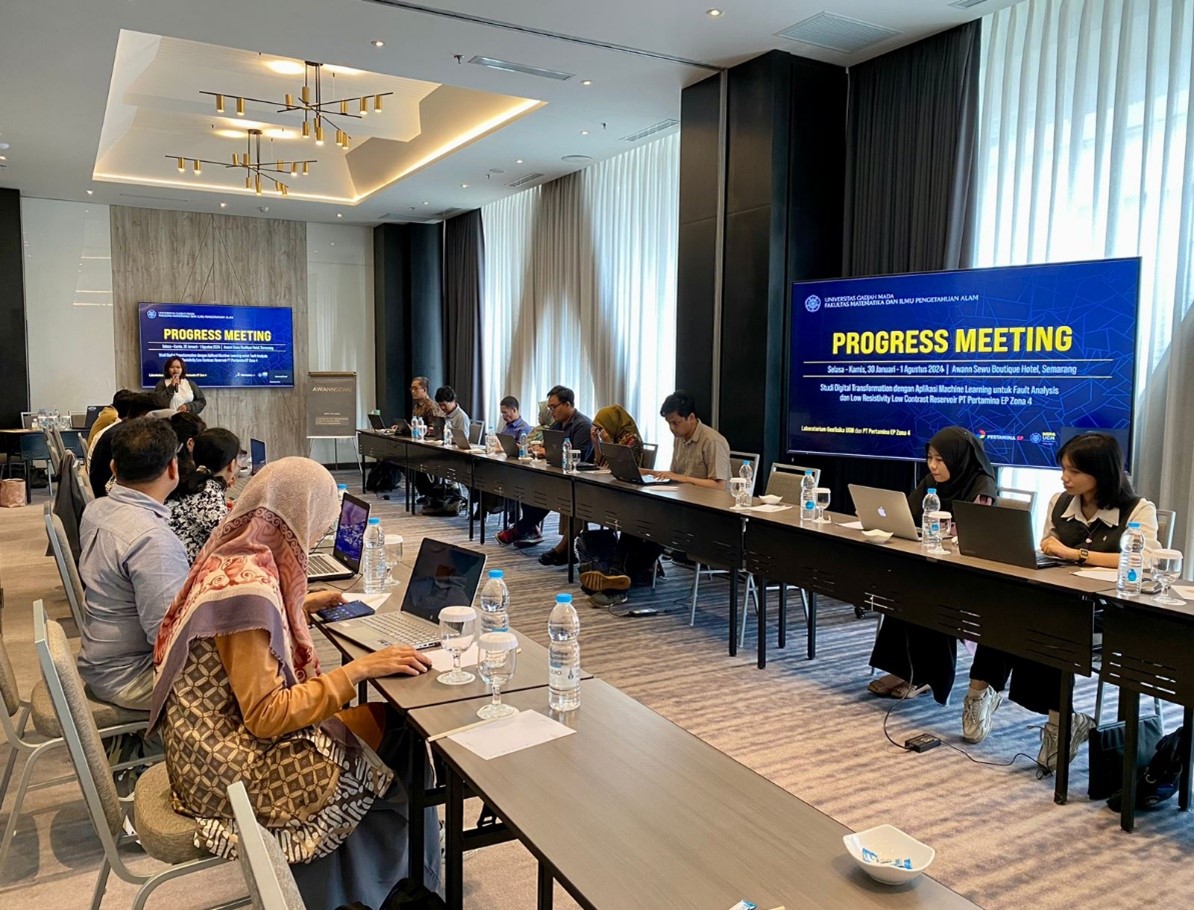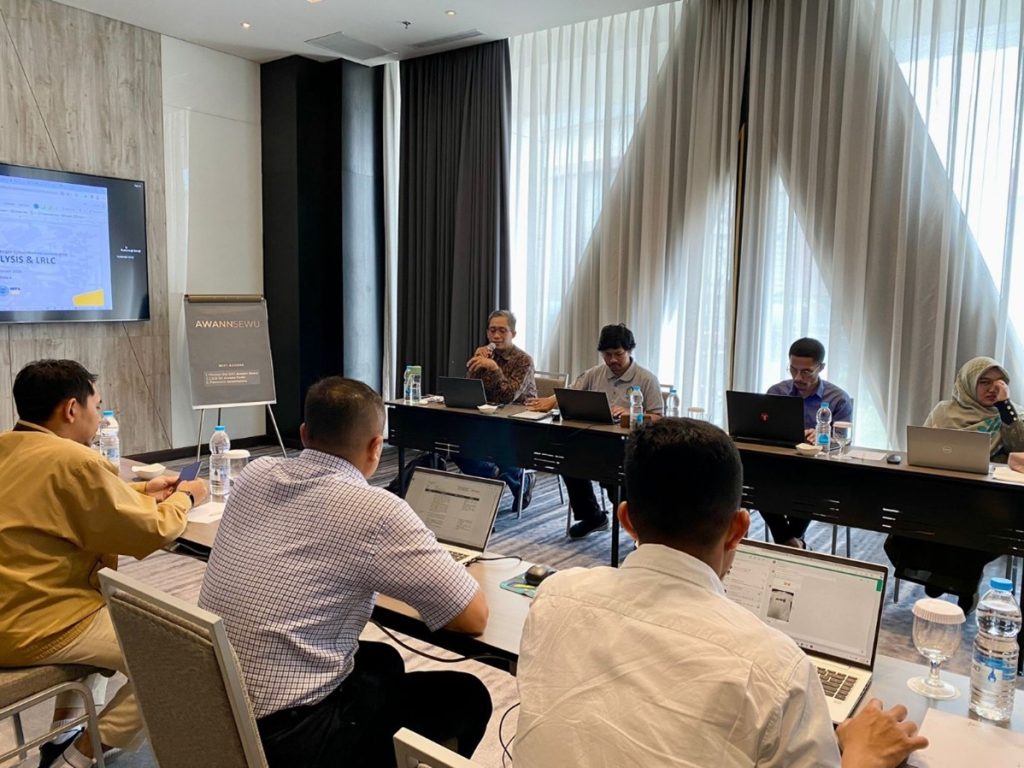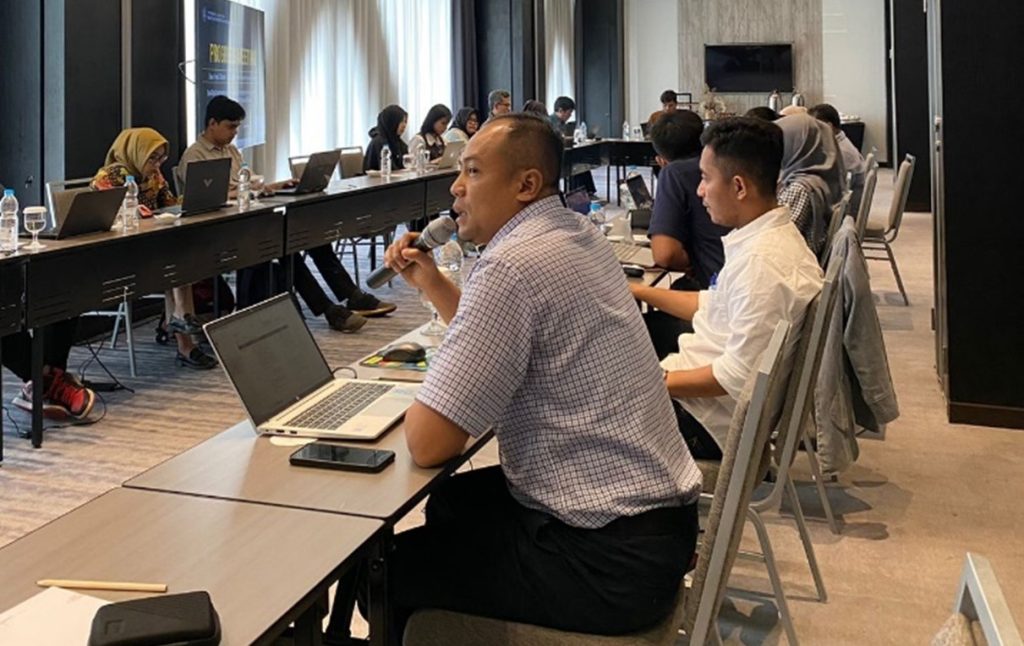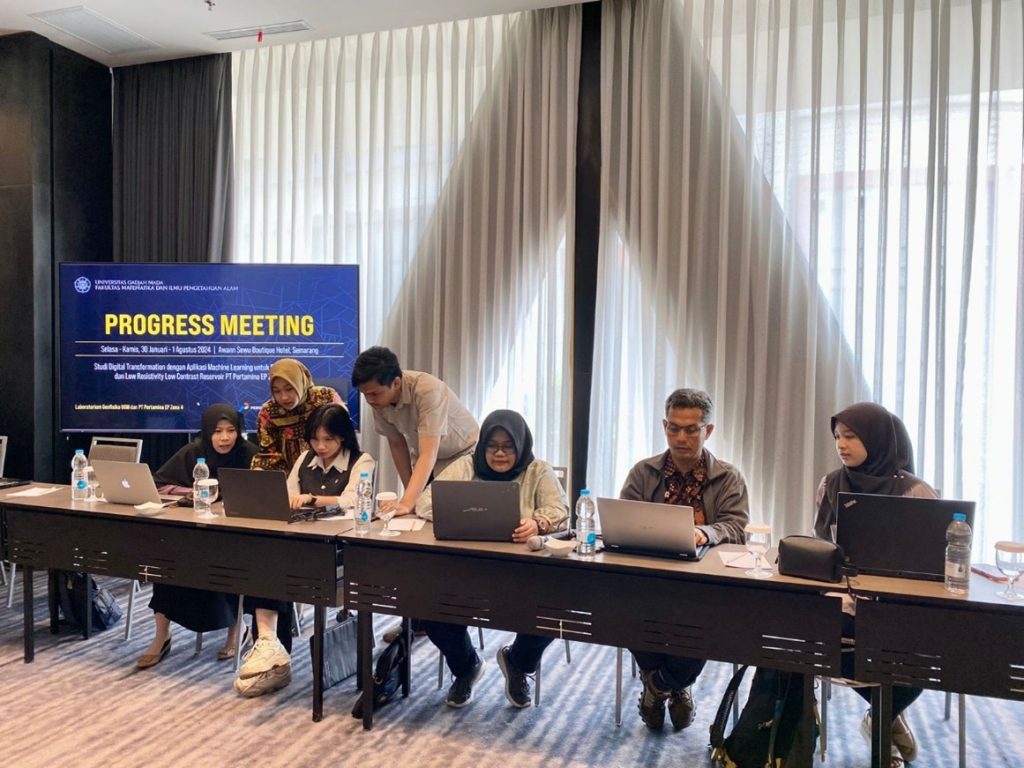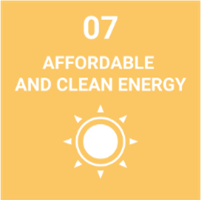The Opening of Progress Meeting Collaboration between PT. Pertamina Zone 4 and FMIPA UGM
The artificial intelligence system developed by the FMIPA and Pertamina EP Zone 4 is capable of predicting the presence of hydrocarbons in layers that are difficult to detect. Hydrocarbons typically have relatively high resistivity values and high-contrast values (LRLC – Low Resistivity Low Contrast reservoirs). However, it is not uncommon for hydrocarbons to hide in zones with low rock resistivity values. This makes hydrocarbon zone analysis very challenging.
“FMIPA is very grateful for the digital transformation study challenge by utilizing this machine learning technology. Studies like these must continue to be conducted so that Indonesia not only becomes a user but also a creator of technology,” said Wiwit Suryanto, Vice Dean for Research and Community Service, on Wednesday, Jan 31st, 2024, at the Awann Sewu Hotel, Semarang.
Presentation of Study Progress by Dr. Sudarmaji, M.Sc.
In addition to machine learning technology for LRLC cases, the FMIPA team has also developed fault analysis technology on seismic data using computer vision and geophysics. This technology can expedite the process of identifying reservoirs and hydrocarbon traps. On this occasion, the FMIPA team led by Sudarmaji and Pertamina EP Zone 4 also discussed potential collaborative research opportunities to optimize hydrocarbon production.
Mr. Yan Yan Gustian from PT. Pertamina EP Zone 4 is currently delivering a speech
The research team from FMIPA UGM is currently in discussion before the event commences
Previously, FMIPA and Pertamina EP Zone 4 collaborated on machine learning research for Low Resistivity Low Contrast (LRLC) Studies and Fault Analysis. This study was conducted from 2023 to 2024 and involved several experts from the Department of Physics, Department of Computer Science and Electronics, and additional experts from the UGM Geology Department. This research was conducted to support SDG 7 on clean and affordable energy because the methods and technologies used are environmentally friendly and operationally cost-effective, as well as SDG 9 on industry, innovation, and infrastructure in hydrocarbon research development.
Author: T. Marwan Irnaka, S.Si., M.Sc., Dr.
Editor: Febriska Noor Fitriana
Photos: Nindy Husnul Majid
SDGs:
